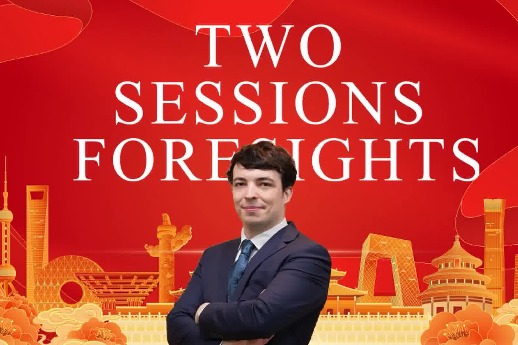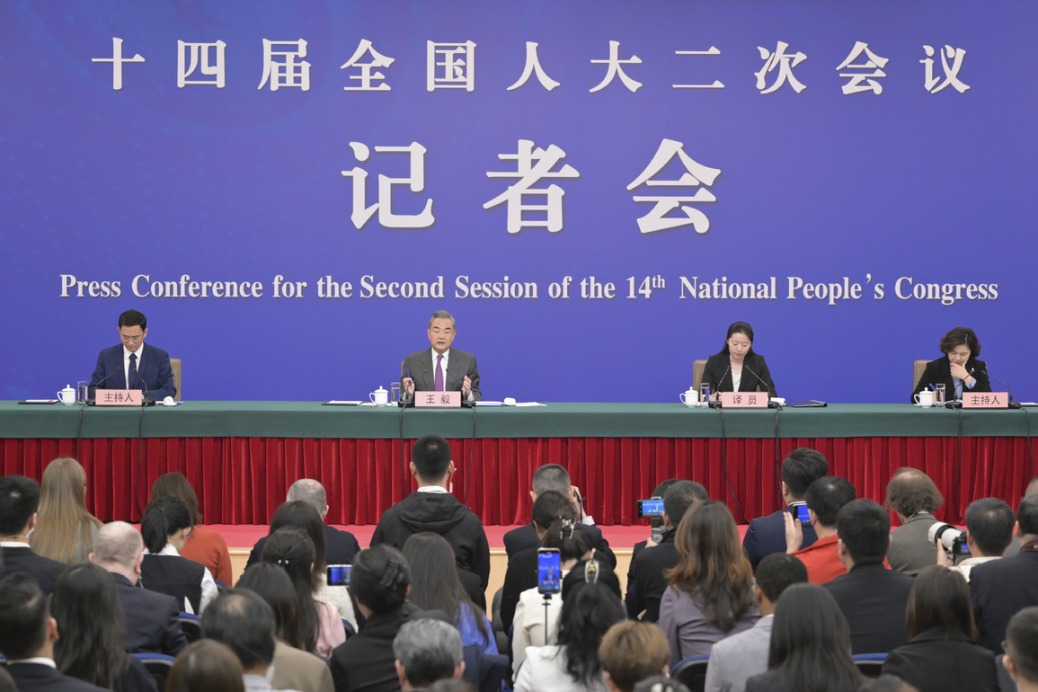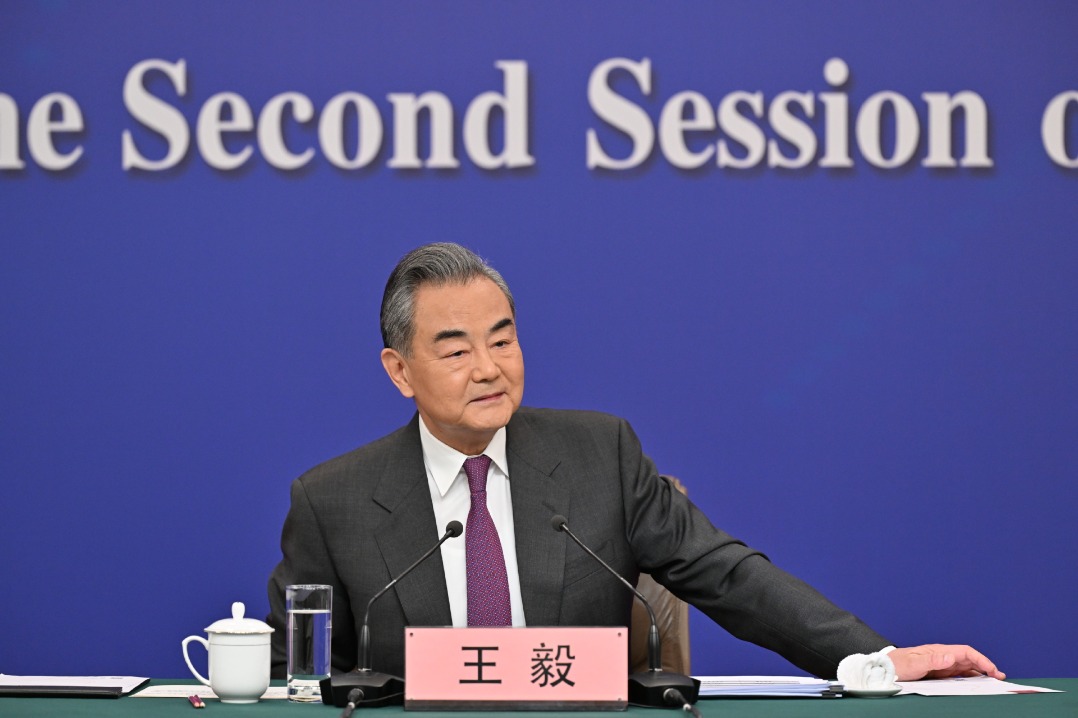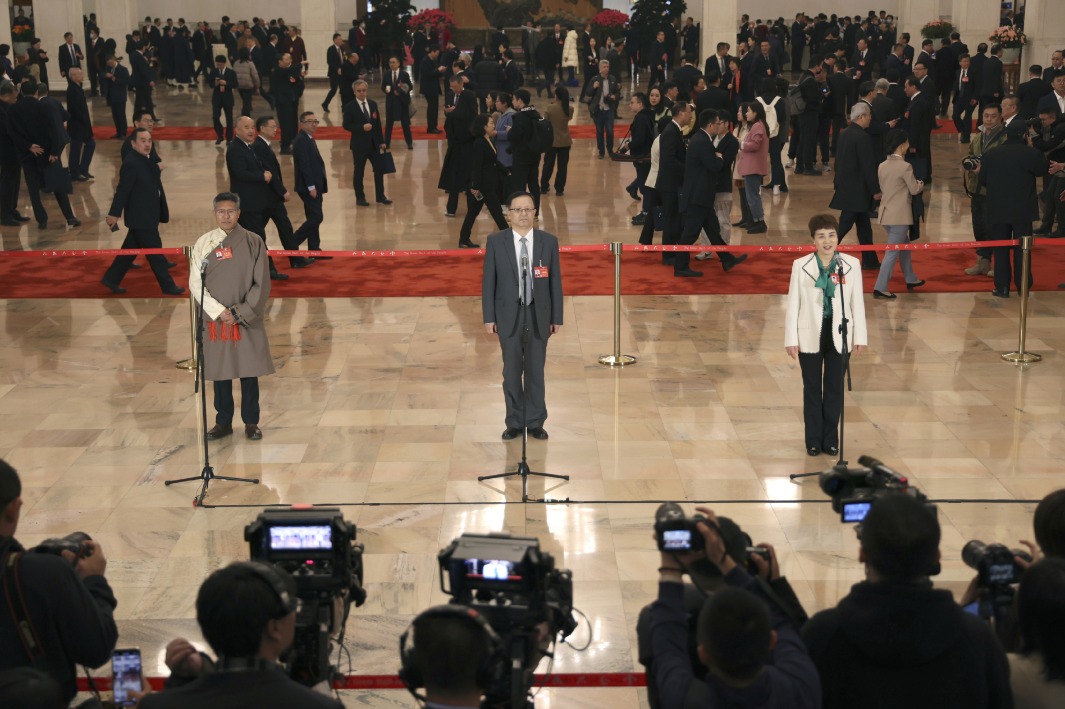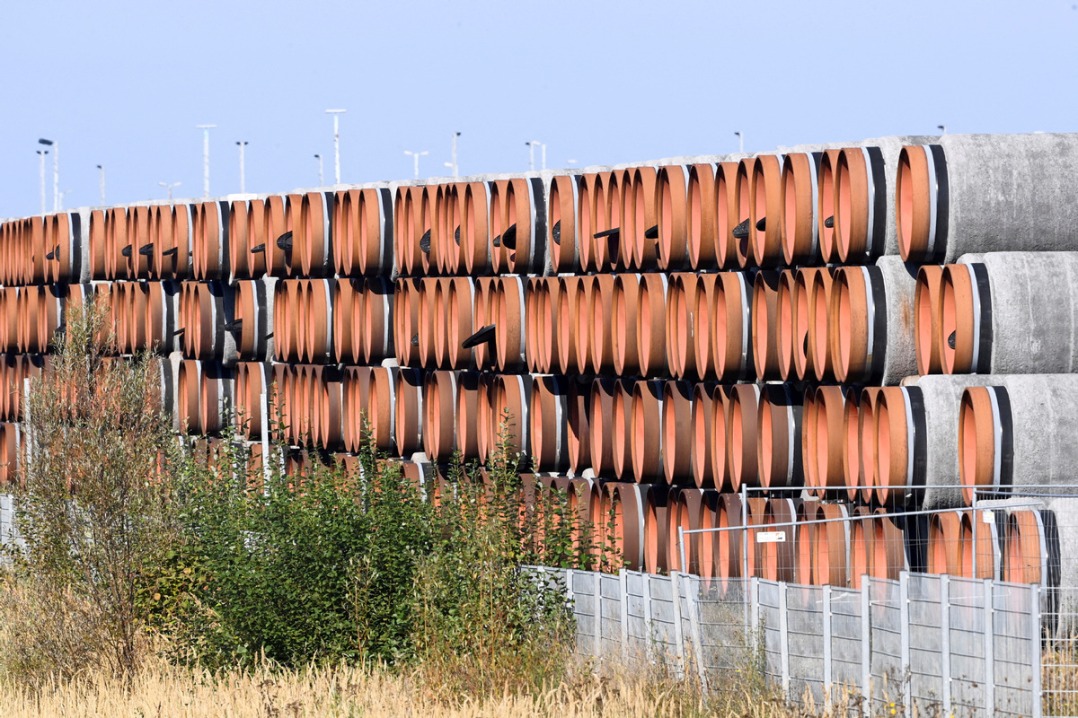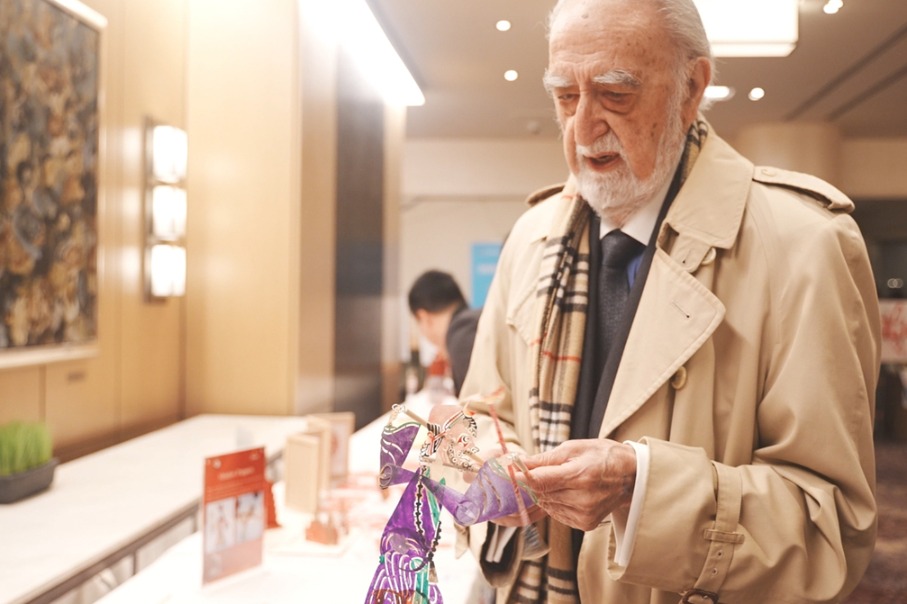Australia urged to reset ties with China
By ZHAO JIA | CHINA DAILY | Updated: 2022-06-04 08:33
During Pacific islands tour, Wang says 'autopilot mode' not an option
State Councilor and Foreign Minister Wang Yi called on Australia on Friday to reset relations with China with concrete actions, saying there is no "autopilot mode" to improve the bilateral ties.
He made the remark during a 10-day tour of the Pacific island nations that will end on Saturday.
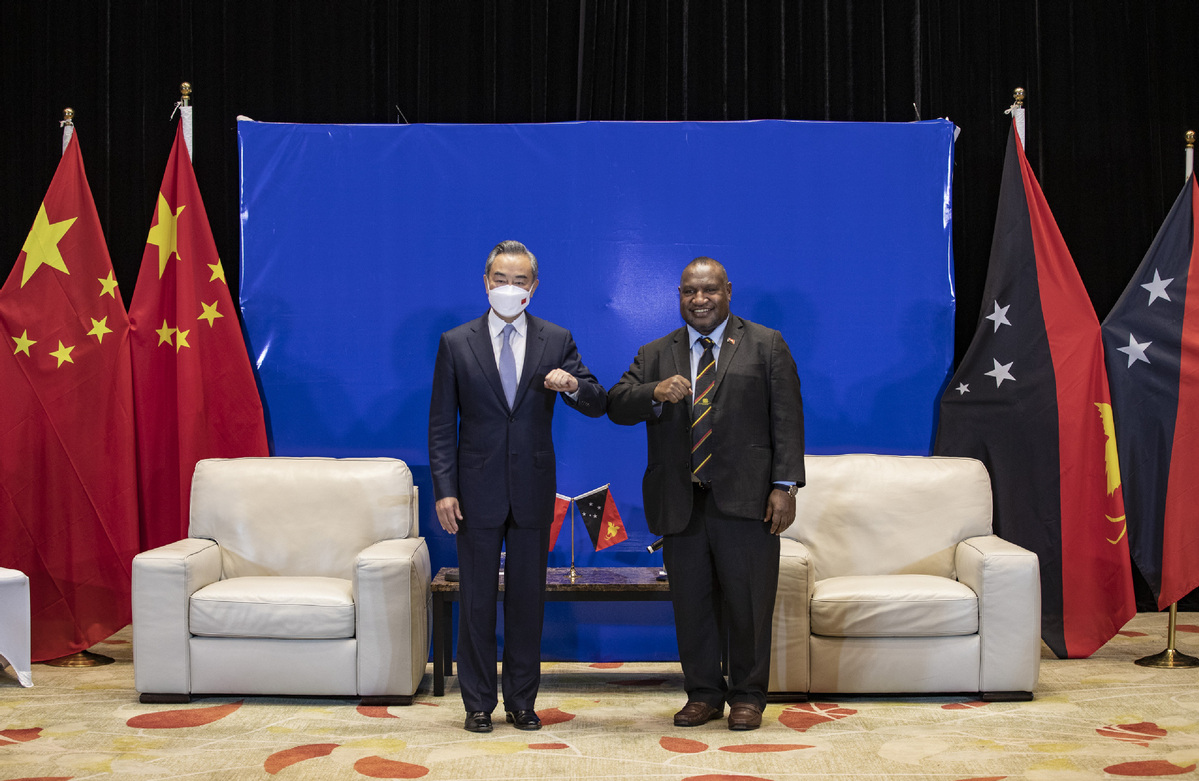
Wang said that in recent years, some political forces in Australia have obstinately viewed China as a rival rather than a partner, and hyped up China's development as a threat rather than an opportunity. This has led to a significant setback in its years of positive and pragmatic policy toward China, he said.
The solution is for Australia to view China and its relations with the country in a rational and correct way, with respect for each other, seeking common ground while shelving differences, and creating necessary conditions for the relations to return to the right track, Wang said.
Improving the bilateral ties is in line with people's aspirations and conforms to the trend of the times, he added.
Wang's comments came during his stay in Papua New Guinea, the last stop of his tour in the South Pacific region, which covered all 10 island countries that have established diplomatic ties with China.
While he and Papua New Guinea's Foreign Minister Soroi Eoe met with reporters, Wang said China's cooperation with island countries will be dynamically driven by the twin engines of bilateral and multilateral cooperation, with bilateral cooperation as the main channel.
He said he deeply felt the enthusiasm and eagerness of the island countries to carry forward cooperation with China.
Wang noted that he had met with 17 leaders and over 30 ministerial-level officials either in face-to-face talks or via video, and co-hosted the second China-Pacific Island Countries' Foreign Ministers' Meeting with Fiji's Prime Minister Frank Bainimarama.
During the visit, Beijing signed 52 bilateral deals with the island nations covering 15 areas, including coping with climate change and the COVID-19 pandemic, which will provide new impetus for their economic development and improvement of livelihoods.
China also issued a position paper outlining 15 proposals and 24 measures for deepening comprehensive strategic partnership with the nations, featuring mutual respect and common development. In addition, it expressed its readiness to build six new platforms for cooperation with the island nations in light of their needs.
Noting that China's diplomatic style differs from that of traditional major powers, Wang said China provides "equal treatment" and "mutual support" and focuses on development when dealing with developing countries.
Wang said China fully understands the value and importance of equality for developing countries, adding that Beijing will not proceed from "a position of strength".
Instead, Wang said China champions democracy in international relations underpinned by the purposes and principles of the United Nations Charter and international law, not the so-called rules unilaterally set by a certain major power or a handful of countries.
Wang called for developing countries to support and help one another to safeguard their shared interests and oppose bullying in any form, in order to make the world more balanced and harmonious.
China urges Western countries to ramp up input and support for developing countries, rather than think about geopolitical competition and exploit small and medium-sized countries as pawns for political purposes, Wang said.
He dismissed disinformation that a regional security deal will be signed between China and the island countries, saying that Beijing comes to the region to improve people's well-being rather than to build military bases, and will garner more consensus through cooperation.
China remains open to conducting multiparty cooperation with developed countries to achieve win-win results, he added.
Ruan Zongze, executive vice-president of the China Institute of International Studies, said Wang's remarks showed that the key to successful ties between China and other developing countries is the fact that China, as the biggest developing country, has a natural closeness to and understanding of other developing nations.
Equal treatment, mutual support and development are also the greatest common denominator between the two sides, he added.
Guo Yanjun, director of China Foreign Affairs University's Institute of Asian Studies, said the visit has enhanced the political trust and development-oriented cooperation between China and the island countries. Interference and disruptions from Western countries will not hinder this cooperation, he added.
After concluding his trip to Papua New Guinea, Wang arrived on Friday in Timor-Leste for a two-day visit.
In another development, Australian Foreign Minister Penny Wong was in Tonga for a visit on Friday. The trip to Samoa and Tonga was her second to the Pacific region since she became foreign minister.
- Restarting China-Australia relations requires concrete actions: Chinese FM
- China free to set Asia policy despite US
- US agenda seen as no more than move to contain China
- Moves by US pose threat to global peace, stability
- Outpourings of concern just symptom of West's overreaction to its own anxieties: China Daily editorial







